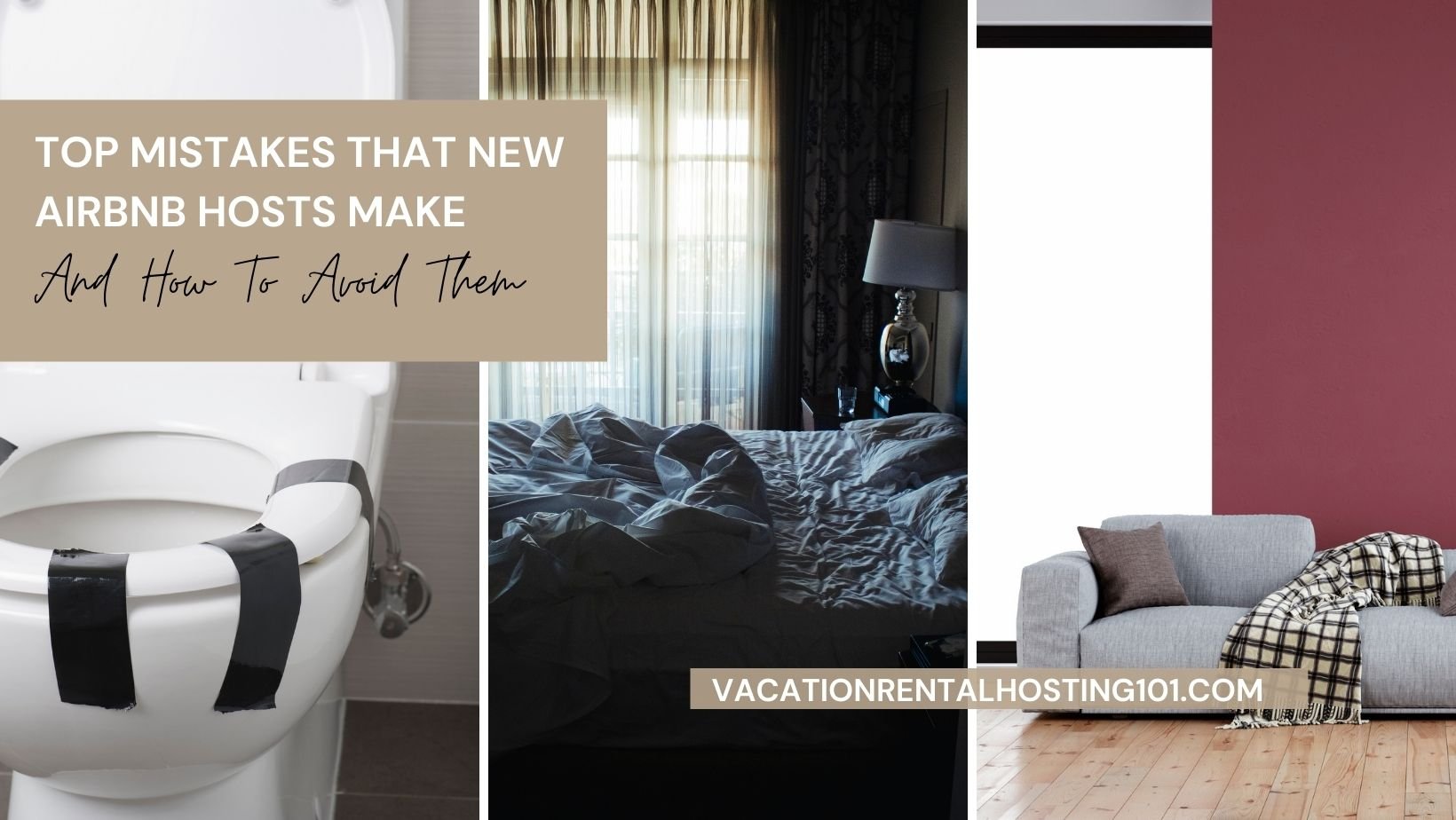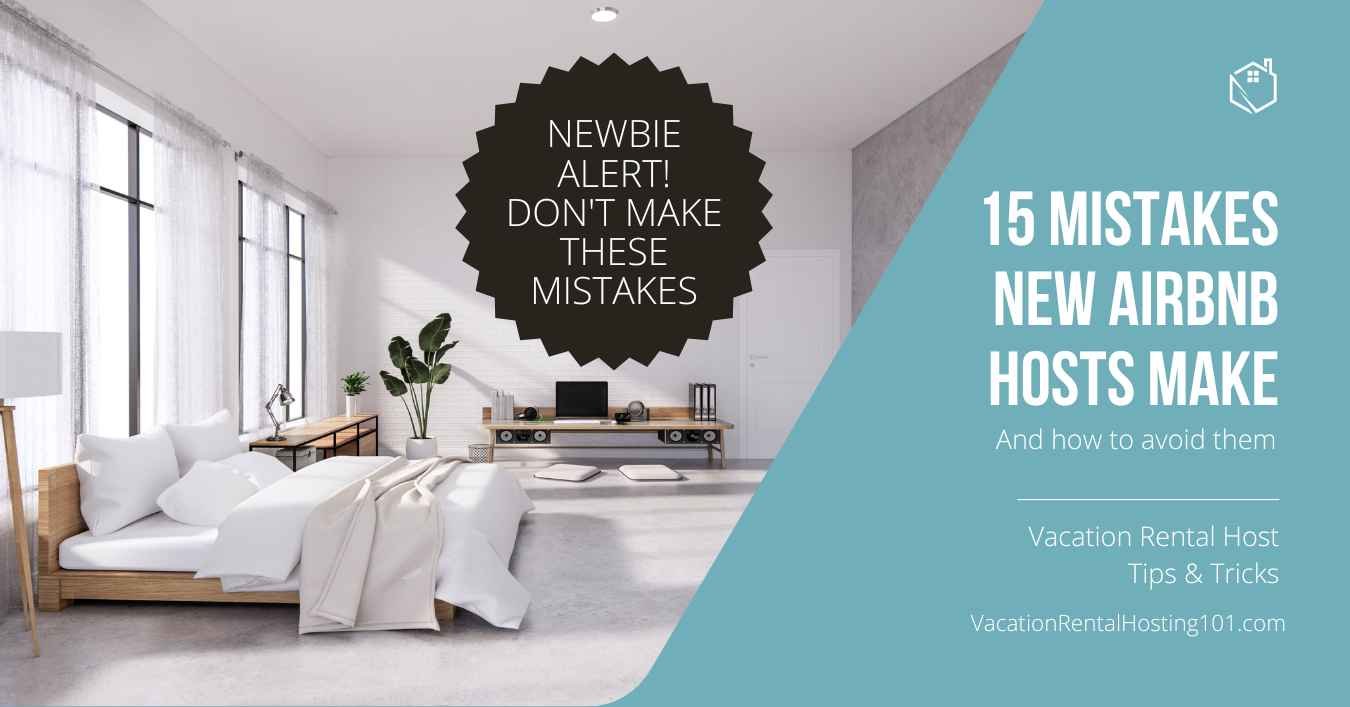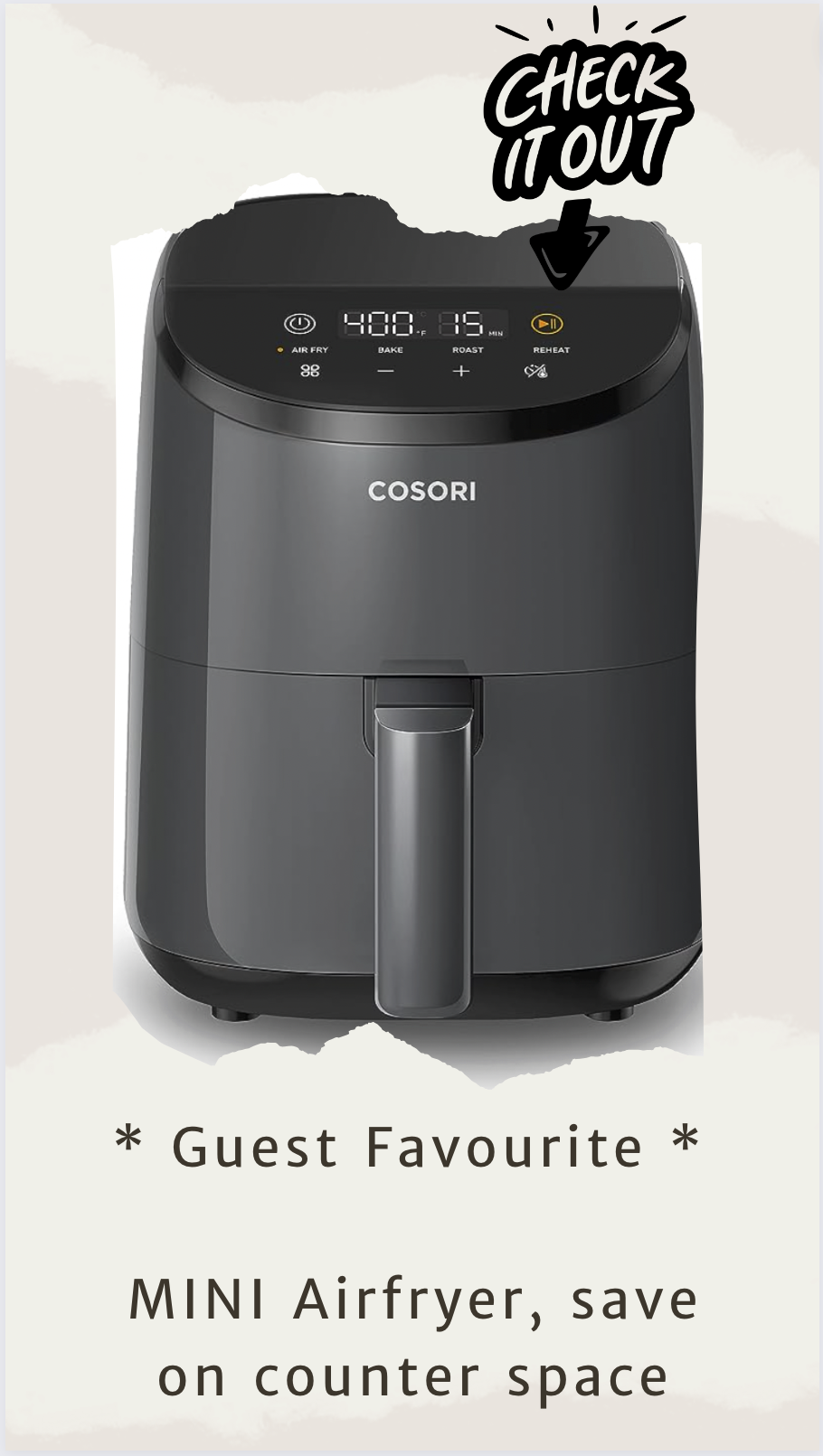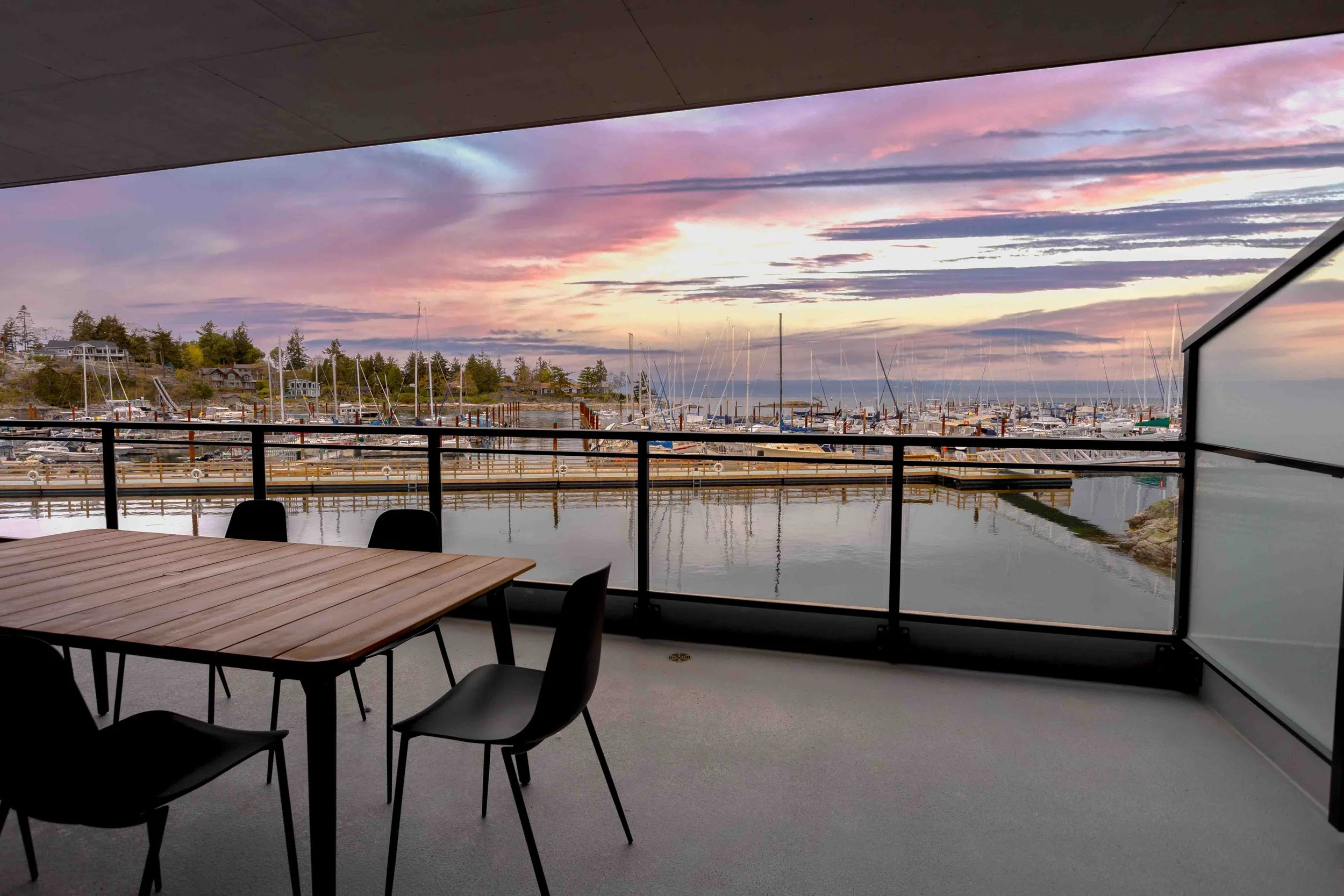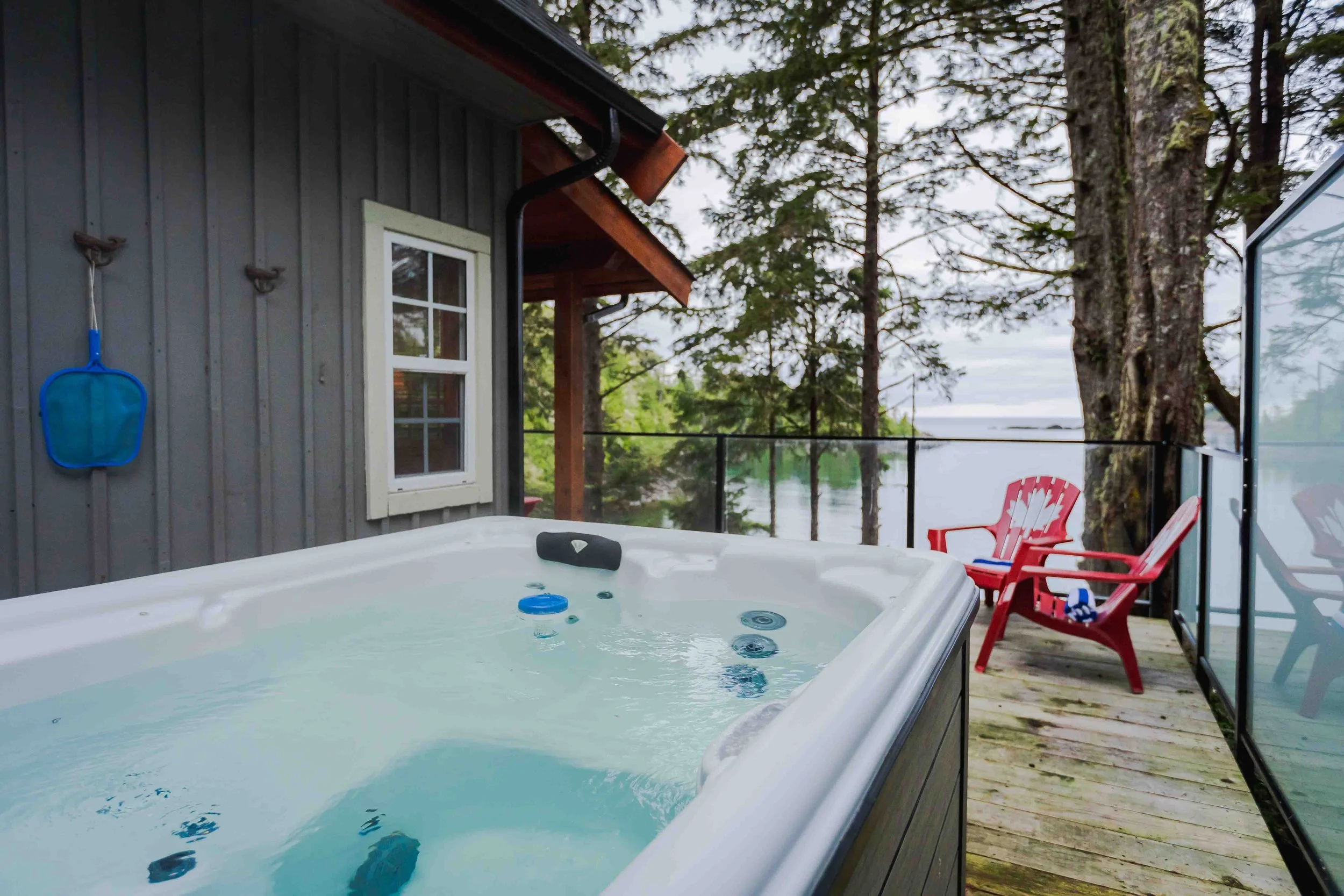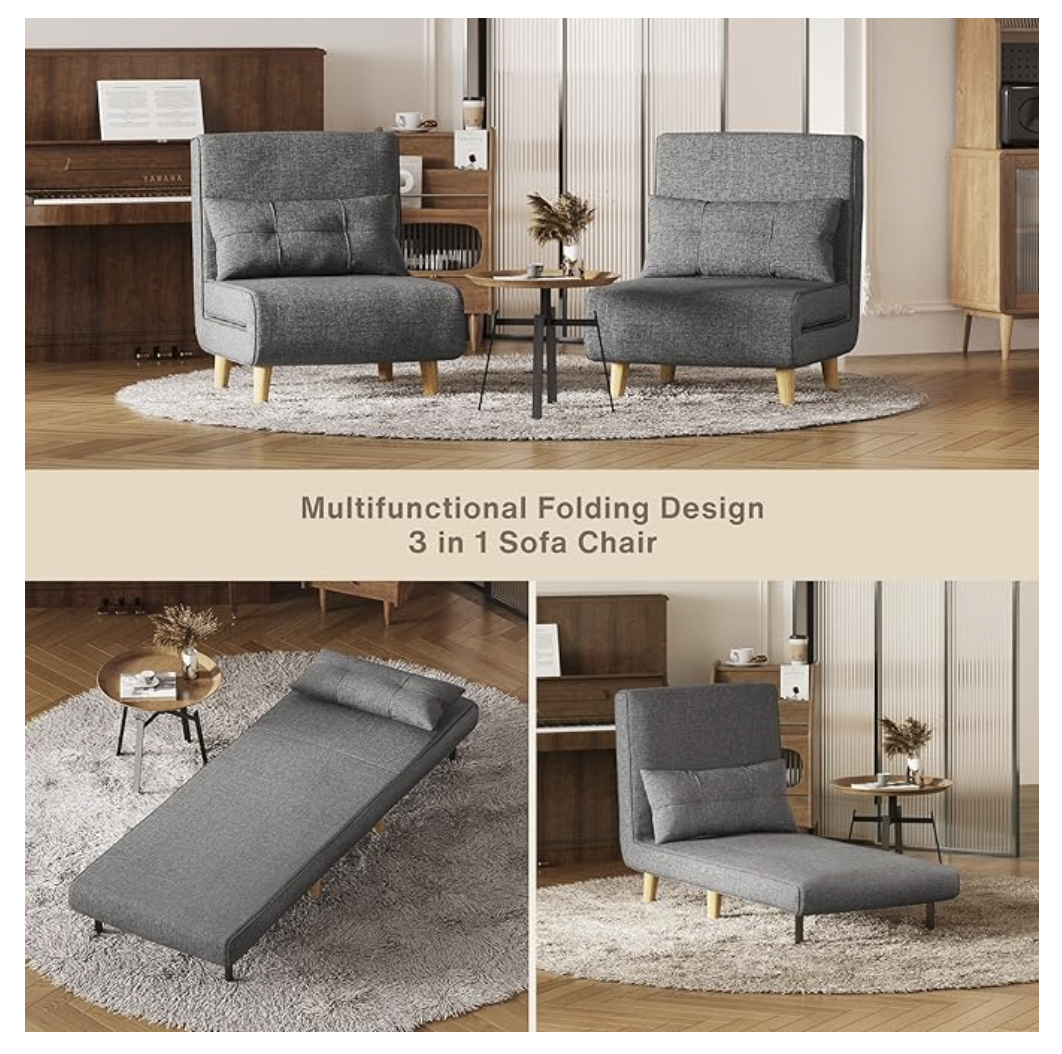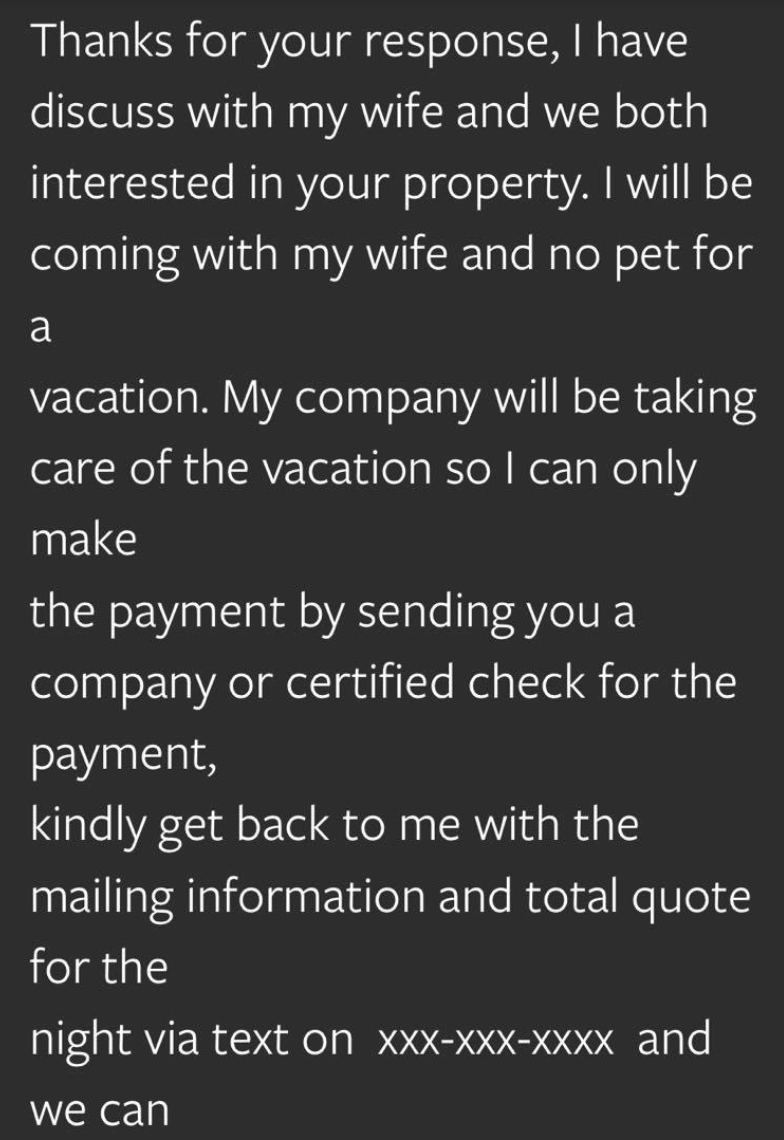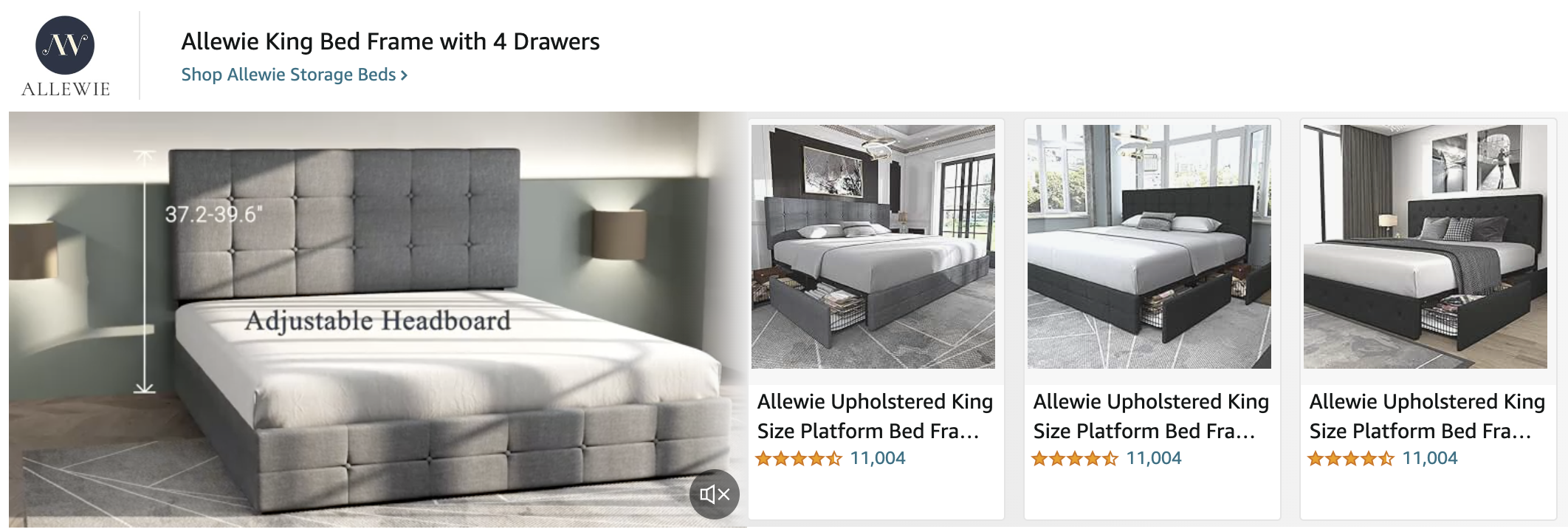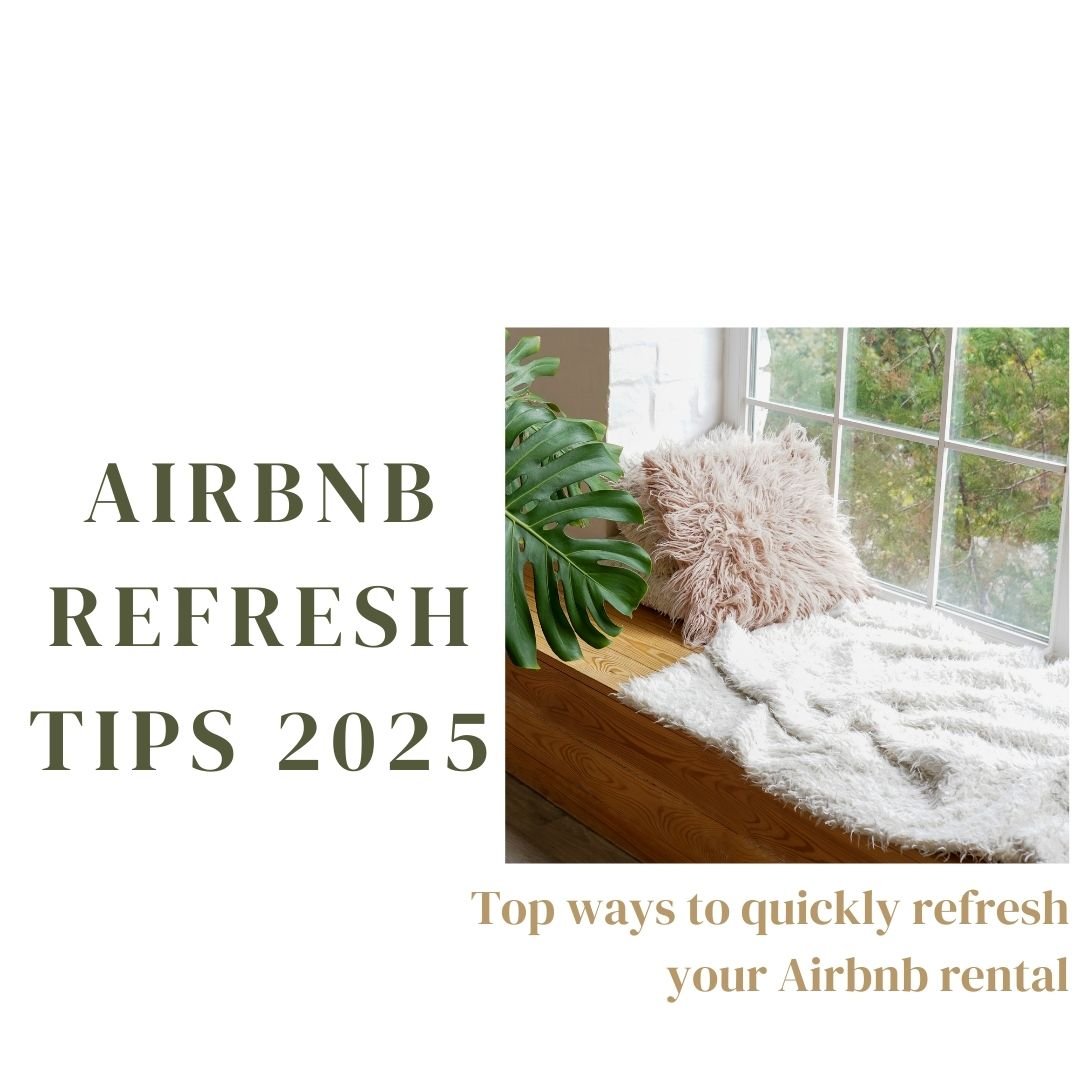15 Mistakes New Airbnb Hosts Make, and How to Avoid Them.
This post may contain affiliate links. Click here for more information. Thanks for visiting and supporting out content
15 Mistakes New Airbnb and VRBO Vacation Rental Hosts Make, And How to Avoid Them
When you are a new host, it’s overwhelming to get your to-do list done, to complete the design and fill it with amenities and your personal touch and get your listing launched. There are a lot of moving pieces, often on a short timeline.
As a new host, those first reviews are very important to help your listing. A bad review can greatly impact your Airbnb listing for a long time to come, and in some cases can cost you money (such as damages from a bad guest).
Read on for our notes on how to avoid common mistakes as a new vacation rental host.
This is a LONG POST because the information is really important for you. Please PIN or Bookmark to come back later if you don’t have time to finish today
1) Rushing to Launch Before You’re Ready
2) Not Having Enough Furnishing or Basic Supplies
3) Using Dark, Blurry, Cluttered or Bad Photos
5) Not getting your own Insurance specifically covering Vacation Rentals
6) Not testing appliances, electronics and amenities and properly cleaning everything before your first guest stays
7) Forgetting to create and communicate a check in process including directions and important information for your first guests.
8) Not reviewing common scams that look like Airbnb/VRBO booking requests (many of your first inquiries especially on VRBO will be scams)
9) Giving out your property address to unconfirmed guests, or showing the address in your photos
10) Accepting long term guests without knowing local tenancy laws or collecting a damage deposit
11) Not understanding Airbnb and VRBO inquiry and booking processes or declining guests and missing response deadlines
12) Reading too much bad advice on facebook groups.
13) Putting paper signs all over the place with too many rules and how-to’s
14) Launching your listing without setting holiday rates and minimum stays
15) Declining guests with zero reviews
Important Feedback to help you start your first, or next, vacation rental and avoid these simple mistakes
Airbnb, VRBO, Vacation Rental Hosting.
It’s a big business trend and one that people often don’t understand, and can easily become overwhelmed with too much advice or too many options.
When you are just getting started, or looking for advice, everyone “in the industry” has an opinion, it doesn’t mean their advice is correct or even legal. Now with ever changing local laws and bylaws trying to catch up to this industry, along with provincial or state tenancy laws, discrimination laws and so many other pillars to be aware of when operating a vacation rental business.
Ask a lot of questions when you are looking to get started. Try to find a regional facebook group for Airbnb & Vacation Rental hosts in your area
Look for common themes in the advice you see in vacation rental facebook groups, and do your research when people give important advice on things like insurance or guest damages
Browse using the search button to ask your question as it has probably already been asked many times and you can see loads of feedback.
Take that feedback and do a little more research though to make sure you are off to the right start.
Reach out to experienced hosts in your local Airbnb & vacation rental facebook groups, read up on websites (like ours), and youtube channels (such as Robuilt) run by professional hosts with multiple successful listings who speak to the HOSPITALITY of the business not just making money and disputing every bit of negative feedback from guests.
I am an experienced Hospitality manager, host, co-host and airbnb photographer. I have worked in many high end hotel roles from dishwasher and housekeeper to front desk clerk and I have an associates degree in Hospitality Management. I currently co-host 5 properties in Canada and Mexico.
I’m still not an expert by any means and I am always learning.
I learn new things every single day, and this industry constantly throws changes and new rules as it is a rapidly growing and evolving industry.
Be open to learning all throughout your hosting journey.
This is not a passive income industry, it requires customer service and hands-on effort to get started and to be successful.
You need to understand the business, and the local rules, legalalities and regulations, and insurance and safety requirements just as much as the VRBO and Airbnb platform rules.
Here are some of the top mistakes new Airbnb hosts make, with details to consider so you can avoid making these mistakes too.
1) Rushing to Launch Before You’re Ready
Yes you want to get guests in the door and start making money, and you should definitely set a start up date goal to make sure you are on track and getting your to-do list done, but don’t start accepting guests if you are not ready to give them a good experience and a fully clean and functional space.
Ready Means:
no leftover maintenance or construction items in progress (unless VERY clearly disclosed up front in the listing and welcome message and nothing that could be a safety issue)
You have all the necessary supplies, linens, cleaners lined up and have a check-in process ready for how guests will find and access your rental and you can ensure your first guests can check in and get settled without having to contact you for help
The space is fully cleaned, deep cleaned! When it’s a new rental and these are your first guests, everything should be clean from top to bottom, including ceiling fans, windows, dark corners under appliances and all cupboards inside and out
Safety items have been checked - do you have egress windows or emergency exits for fire escape, working smoke & C02 detectors, a fire extinguisher
Your calendar is up to date and rates are properly set. Block off any personal use dates right from the start and make sure to sync calendars if you are using more than one rental website so if you get a booking through one website, it will automatically block your calendar on the other one and help prevent double bookings
2) Not Enough Furnishing or Basic Supplies
No matter what website you look at, they will all tell you more beds equals more revenue. But can your space comfortably fit and accomodate more people? Jamming 4 bunk beds in a 1 bedroom 1 bathroom condo is not a great idea to attract valuable guests, unless you are aiming for college students and hostel backpackers.
Who do you want to attract to stay in your space? Business travellers? Families? couples or single travellers?
Do you have the right furniture and amenities for your ideal guests? If you have 2 beds and sleep 4 people, there needs to be enough room in the kitchen/dining space and living room for 4 people to sit and eat and enjoy their stay outside of just being in their bed. You need to have enough dishes, towels and basic supplies for 4 people to use.
View the room by room checklists here to give you an idea of basics and extras and how many to include.
3) Using Dark, Blurry, Cluttered or Bad Photos
This should speak for itself but it is so common, that I can’t say enough that good photos taken during DAYTIME with blinds open, lights on, showing bright, welcoming spaces is the number one most important thing to attract potential guests.
Your space MUST BE CLEAN before you take the photos
Toilet seats down, clean floors, no junk or in progress stuff in the background.
If it is dark and blurry or you chose a weird close up photo of the decor as your feature image, why is someone going to click on your link. They are going to skip right past your first photo and click on the next listing that stands out with bright, quality photos
Your property needs to stand out right from day one and accurately reflect your space and good quality photos are the #1 factor to this.
Here’s our Photography Guide for tips to DIY your photos. But hiring a professional will really go a long way, and it’s not as expensive as you may think.
You’ll likely still get bookings, but if your traffic and bookings drop off, are your photos attracting guests?
4) Having Cameras in the wrong places (or illegal places!)
Security cameras and noise monitors must be disclosed in your listing as to where they are.
There is a checkbox on the amenities to indicate your cameras, and you should also add a note in the description as guests can immediately cancel and recieve a full refund for any cameras they feel were “undisclosed” even if you check off the camera box on your amenities list.
Doorbell Cameras are definitely helpful if you are not local to check in your guests, but it needs to be mentioned in your listing very clearly.
Interior cameras - No longer allowed anywhere in any Airbnb listings as of April 2024.
Having interior cameras, you are causing more discomfort and deterring bookings, but I can understand the desire to protect your space. Hotels only use cameras in common areas.
Again, a guest can get a free stay by asking Airbnb for a refund if they think your camera is inappropriate even if it is disclosed.
Cameras cannot be angled or located in any space where guests may be undressed, sleeping or using the bathroom. This includes living rooms with sofa beds. The updated privacy rules on Airbnb no longer allow any indoor cameras to monitor your rental or guests in any way.
You can’t actively monitor guests (spy on them) by watching the live stream from your cameras or recording their discussions or interactions including from doorbell cameras.
Guests have a right to privacy and you should only check your camera on arrival or if you think there is an issue.
5) Not getting your own Insurance that specifically covers your property or rental for Vacation Rental Short Term Usage
One of the biggest mistake new Airbnb Hosts Make, is thinking that airbnb or VRBO is protecting their property.
VRBO does not provide hosts with ANY insurance coverage for guest damage or liability. Read more about VRBO coverage here.
Airbnb provides some coverage in some cases but you can still be out of pocket for many issues and you can be liable for many guest issues especially in the case of injury.
You need to have your own liability and damage coverage for any of your vacation rentals, make sure your home insurance has short term rental coverage specifically and consider collecting a security deposit from guests.
You also need to make sure your space has the required safety and security measures in place that your insurance company requires (such as gates around pools and smoke detectors).
For a dramatic example of why you MUST have protection, check out this video from an incident in Malibu in 2021.
As a protection for yourself, insurance should be top of your list of considerations before you list your rental
6) Not testing appliances, electronics and amenities and properly cleaning everything before your first guest stays
Be sure to test all appliances, including new ones, before your guests use them.
Make sure you didn’t forget the plastic inside of the stove or that the coffee machine doesn’t leak.
We recommend getting thrift-store finds for many kitchen items, just be sure they are clean and functional for guests and that you have personally used them.
Your rental needs to be cleaned top to bottom spotless, even if you aren’t finished with the furnishing and decor final touches yet, you can still start having guests but make sure everything is cleaned.
If you miss something, guests will be sure to find it and it can affect your very important first reviews.
7) Forgetting to create and communicate a check-in process, including directions or sending any important information for your first guests.
Even if you have your address saved on your VRBO profile and Airbnb profile, you need to set up a check-in process that you deliver ahead of time to your guests in the platform.
Your check in email should be saved as a template or copy & paste message that you create that you can re-use over and over, with just a little personalization for each guest.
Vacation Rental Check-in info should include
How to find your property - google isn’t always accurate so test the directions yourself and make a couple notes about how to find your house based on nearby landmarks.
Include info on where to park, how to access the parkade, etc. If they need a parking pass or FOB, how does the guest receive this?
Building Access - Do they need a fob, do you create a unique door code for each check-in, is there a hard key? How are the guests getting into the unit. We send this info no more than 24 hours in advance with the address
Remind guest that check-in time is at “X” time and they cannot access the suite early including parking.
Remind guest of any important house rules to highlight
Include wifi information even if it’s already in your listing info
Provide contact info in case of emergency and how to reach you with questions (preferably through the platform), and indicate hours that you will be available to respond to messages
Prepare a guest guide with how-to information if there is anything that may be difficult or need instructions to operate, such as a hot tub, fireplace, smart tv or thermostat controls.
8) Not reviewing common scams that look like Airbnb/VRBO booking requests, (many of your first inquiries will be scams)
If you get an inquiry that is not a booking request and you see words such as:
“are these dates available” (when clearly they are in the calendar as they made the request)
or “I need to check with my wife or my company is paying by cheque”
or they ask you to respond in any way outside of the platform, by text or by clicking on a link, these are some of the common scam emails that run rampant with your first requests as they always target new listings.
Our VRBO accounts receive many of these scam inquiries, much more than on Airbnb. On VRBO you also cannot review guests with details, only a star rating. You are able to fully review guests on Airbnb in detail, which makes it easier to identify valid user accounts.
You cannot ignore the messages, you need to report them as spam or it will affect your response time rankings on Airbnb
You may get direct text message scams to your cell phone asking “is this your property link” don’t ever click on this, it is a phishing attempt to take over your account.
Do not communicate with anyone on Whatsapp or outside of the platform unless they have already booked and paid for their rental time with you. Even then, it’s best to keep communication in the app.
Go to this vacation rental facebook group and do a search for the word SCAM in the top right hand corner to see many many examples that run through the platforms.
9) Giving out your property address to unconfirmed guests, or showing your address in your photos
This can often lead to scams and even theft and fraud. Fraudsters copy your photos, get your address and then post your place as a long term rental on Craigslist and try to get people to pay them to rent it. They also may use your address to ship fraudulent orders from amazon and other accounts.
NO ONE needs your exact address to “confirm their travel plans” before booking, never give out the address until the guest is confirmed and is within a couple days of their stay.
Your property shows an approximate map location within a few blocks when they are searching and they can see this anytime. If your description is clear on proximity to things like the beach or local attractions then that’s good enough.
If your photos show the exterior of your home AND house number in your listing photo, and they know it’s vacant because they can see your calendar, it’s just asking for break ins and scammers when you give them the address or even the street name as they can use google street view to match it to the photos.
10) Accepting long term guests without knowing local tenancy laws or collecting a damage deposit
Many areas are now restricting short term rentals and requiring hosts to have a minimum 30 day rental period. This can mean that your renters are now entitled to full tenancy rights. Be sure that you understand the local requirements and regulation for your area, and if you are looking to accept long stay guests, have a legal tenancy agreement prepared and a damage deposit collected with their ID.
Check into the tips on responsible hosting for your region. Here is the Airbnb Canada Responisble Hosting info
It has become an issue where guests just continue to stay after their reservation check out date, and there is very little a host can do to evict them, even for non payment, and Airbnb or VRBO will not help you get them out so you are now stuck with going through a formal tenants eviction process which can take months.
This is becoming increasingly common in areas with housing shortages, people can’t find anywhere to go so they are taking advantage of short term rentals with no intention of leaving after their paid stay.
You must not take advice from facebook about evicting a guest, there are many laws that can get you in hot water. Contact Airbnb or VRBO right away to discuss next steps, and you may need to get local authorities involved too. Airbnb has more info in their help article here
11) Not understanding Airbnb and VRBO inquiry and booking processes or declining guests and missing response deadlines
Once you go live with your listings, are you ready for your first inquiries and bookings? Your listing shows up live about 1-2 days after you click the button on VRBO or Airbnb, so you should start receiving messages and bookings at that time.
Before you do, go back into your listing and make sure all of your calendar rates and settings are correct.
If you don’t want a guest making a booking and showing up at your door 10 minutes later, turn off the same day booking feature. Check if you want to have instant book turned on and go through those requirements.
An Inquiry in Airbnb is a guest messaging you with questions but they are not ready to instant book your dates (or it could be a scam request). You need to reply to their messages as quickly as possible.
You DO NOT need to pre-approve inquiries and I myself do not do pre-approvals as it will block your calendar and hold it from other guests being able to book for at least 24 hours.
A booking request is a guest who is ready to book and just waiting on your approval. You need to accept or decline these within 24 hours. In Airbnb your listing will be penalized if you let booking requests or inquiries expire without accepting or declining, or if you decline more than 3 requests in a row, you can be suspended.
You cannot see the guest profile photo, last name or contact info until after they are a confirmed booking in Airbnb, and you are not allowed to ask to contact them outside of Airbnb before they are booked with you
On VRBO there is less emphasis on hosts for response times but you still only have 24 hours to respond to a booking inquiry. Again, watch for scam inquiries though, many of your first messages may be scams.
Info on declining an Airbnb trip request
If you decline a booking without a legitimate reason, or you initiate the cancellation of a guest booking, your calendar will become blocked by Airbnb and will not allow you to re-book someone else.
If you have to cancel someone, make sure you REALLY need to, such as if you double book by accident in VRBO and Airbnb, or if you’ve had a maintenance issue come up.
If a guest is trying to cancel for their own reasons and can’t figure it out, direct them to contact airbnb.
Many guests will try to get the host to cancel for them so they don’t get penalized and so they can get out of the cancellation policy they agreed to.
If you cancel for a guest by initiating the cancellation yourself, when the guest is the one wanting to cancel, you will be charged a fee by Airbnb and your listing can be penalized and your calendar will be blocked from re-booking for those dates
Also think ahead to your seasonal cancellation policies and be upfront about these in your listings.
If you are located in a hurricane area, what is your refund/cancellation policy, and how many days ahead can guests cancel if a hurricane warning is posted?
12) Reading too much bad advice on facebook groups.
Always start by looking into Municipal, county, local bylaws, laws and licensing requirements for the location where your property or rental is located.
This is step one.
Do not ask other people on Facebook to tell you what your local rules are, you must find out this info first hand before getting started with your vacation rental listing, or even purchasing or renting a property as an investment.
Due to the impact on suburban areas and housing availability for locals, many places already have strict bans or regulations against short term rental operations, and the rules are changing fast, with steep daily penalties in the thousands of dollars in certain locations such as Vegas and Hawaii.
Social media has taught many of us to go to Facebook or social media first, google second, and factual advice straight from the proper source - last.
In the world of advice, the opinions are endless, they are often not based on facts, rules or even experience. When seeking or reading advice, you need to be open minded and critical of the feedback you receive.
facebook groups are full of anonymous strangers who may not even have experience in running or hosting a vacation rental, they just provide advice at random because “they know stuff” and some join groups quite simply to be trolls and cause controversy and arguments for their entertainment, or they are trying to promote their services or affiliate links
Most people are seeking advice in these groups and posting when they have an issue, a problematic guest or worse. You will quickly be jaded into thinking that the vacation rental industry is full of scary guest situations, headaches, hassles and unexpected costs.
You need to remember that people rarely post GOOD things that happen or positive experiences, they only want feedback when they need help, therefore most of these groups are full of negative experiences with guests.
You need to be open minded. If you ask for feedback on your listing, people will be very blunt and often not “constructive” in their criticism. Don’t take it personal, review what people are saying. If 10 people say your living room looks terrible, don’t try to defend it, think of a solution. Because the next 10 guests looking at photos of your listing may also think the living room is terrible, and they are not going to tell you that, they are just going to book somewhere else.
Advice is often wrong or illegal, especially with issues of permits, insurance, and your local requirements. You must research your local applicable rules such as if long term tenancy laws that apply to tenants over a certain number of days (often 21 or 28 days).
Evicting a non-paying guest from your short term rental can be much harder than you would expect, and in many cases it’s not legal to forcibly evict someone even if they were only supposed to stay for the weekend.
I participate in many Airbnb and VRBO facebook groups and much of the advice is downright terrible and in some cases, illegal, irrelevant and unbelievable.
People see their vacation rental as a business (true) but forget that they are still in the HOSPITALITY business, which means you need to think like a guest and how you would feel as a guest when you encounter an issue with your stay.
Your rental in some cases, may be bound by tenancy laws, hospitality laws and discrimination laws, so you should be aware of these FIRST HAND by going to the source, asking your lawyer, reading local county/state rules and airbnb, vrbo policies.
Do not rely on random advice on total strangers just because they said so.
Do your own research to reliable sources and direct source that apply to your rental location.
Do not make this Airbnb mistake that many new hosts do:
I have seen hosts (more than once) go all the way into buying a property, spending months updating and furnishing it, launching it for short term rental and then being immediately told to shut down because it violates HOA rules or city bylaws. Then the host comes to these facebook groups asking for support and what to do.
You must do your homework ahead of time.
No one on facebook can change your HOA or city bylaws, you should have known them up front and approached questions like this with your lawyer, your realtor, the HOA directly and called the local county or city offices directly to see if you need a licence and what the requirements are.
Many people will tell you to just go for it and hope for the best and ask for forgiveness later.
Can you afford to take this risk if you get shut down before you have your first guest?
Can you afford a fine in the hundreds or thousands of dollars for operating against local laws?
Can you rent the property long term to cover your costs instead if you cannot do an STR?
Do your research. Do not rely on the advice of strangers. Even though you are reading my blog post and I am a stranger to you. These are my opinions based on experience but many points may still not apply to you or the area you want to host in.
Follow me on instagram so you can see me live and post photos once in a while and be a little less of a stranger.
13) Putting paper signs, labels and notes all over the place with too many rules and how-to’s
Do you ever walk into a store where the front door is plastered with handwritten or paper signs before you even get in the door? Think about how low-budget and unprofessional this looks, it doesn’t give anyone a good first impression.
It’s the same impression a guest is going to get when they arrive at your rental. Noone wants to run around reading how-to notes and don’t do this pieces of paper.
Make sure your house rules are stated upfront in your listing, pointed out ahead of time in welcome messages, and delivered professionally to your guests, such as a printed house manual on site.
Read more on creating a professional house-rules guide here
Important items such as Septic System usage, Pool Safety Info, No Smoking and Alarm or Lock Details should be professionally printed and posted, look for templates or products online to easily create professional signage.
We also include these important notes as a reminder in their check-in messages so they are front and centre.
14) Launching your calendar without setting your peak holiday rates and minimum stays
Before you go live on your listing, you need to set all of your rates for the period that your calendar is open.
Pricing is how you make your profit so having this detail correct from day one is very important.
Make sure you set your availability - ie how far in advance are you accepting bookings
Block off your personal use dates right away, or any dates you know the property is not available or you don’t want renters, such as the winter season
Look up all holiday dates and local attraction/sporting event dates for the next year and add your peak holiday rates in right now for all of those dates. You can always reduce them later if you don’t get bookings, but you cannot increase a rate for a booking if you forgot to set holiday or peak pricing and someone books at your cheapest rate.
Have a minimum booking of 3 nights for holiday weekends and decide on your minimum stay for year round travel.
If you are a peak summer vacation destination, consider starting with a longer minimum such as 4 or 6 nights.
Make sure your minimum stay complies with local regulations. Some areas require 14, 30 or even 90 day minimum stays for vacation rentals.
Are your cleaners available on holidays, sundays, or 7 days a week for turnovers? If not, then your calendar availability needs to reflect this, you can set days of the week that are no-check-in days, such as sundays.
If your bookings all summer long are back to back and require same-day cleaning basically between check out at 11am and check in at 4pm, make sure your cleaning company can meet this need otherwise you may need to change your settings to have a one night block for cleaning after each check out.
15) Declining guests with zero reviews
When you first start, Airbnb will let you set up for “instant book” and one of the options to check off for traveler requirements is that they must have previous good reviews from other stays.
There are a lot of new travelers who have not used Airbnb and are just starting out, so their request will come through as a Booking Request or Inquiry and not an instant book.
Just because the account is new does not mean it’s a scam or a bad traveler.
Come up with a couple screening questions to quickly reply to booking requests from new travelers, and any booking inquiries, to make sure it’s a legitimate guest and one that has read your listing details.
Often new accounts are made by scammers (See our Post here on Identifying scams), but you will also get messages and bookings from new travelers who don’t really know how to use Airbnb or VRBO, or what to say in the messages, as well as how to find the right info in your listing.
Ask them a few questions, acknowledge how many guests, pets, kids etc they have requested to book for, see if they have visited your area before, etc.
Get a sense if they are a real person and that they know what your listing includes (or any important house rules such as no pets that you wish to highlight).
Here’s a sample message to highlight listing notes that we would send to a potential booking (this is specific to one of our rentals but it gives you an idea)
Hi ______, thank you for your interest in booking our new vacation rental! I see that you are booking with 2 adults and 2 kids, is this your first time visiting our city? I just wanted to confirm that you saw a couple of our listing details to make sure our space is suitable for you and your family.
We are pet friendly so allergens could be present at any time but we do use unscented & natural cleaning products and laundry detergent
We are approximately a 15-20 minute walk to the beach, and there is public paid parking at the beach
We have a maximum guest capacity of 4 people as required by bylaw, no additional overnight guests are allowed (including infants/children)
If you can please reply asap just to confirm that everything is suitable for your trip needs, and I can get you all booked in today. Please let me know if you have any further questions.
Bottom line - ask a few questions, make sure they aren’t using a copy and paste reply such as the scam samples above (ie “my company is paying by cheque”), get a sense that they are a real traveller and a good fit for your rental.
Are you Ready to get started on your Airbnb listing?
Click here to use our referral link which may include a small welcome bonus for you from Airbnb. *Airbnb terms and conditions change regularly for this bonus offer.

